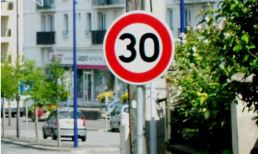We have no money gentlemen, so we shall have to think.
– Ernest Rutherford, on taking over Cavendish Laboratory in 1919
 World Streets is an independent, collaborative, public interest platform in support of sustainable transport, sustainable cities and sustainable lives and which, as a matter of
World Streets is an independent, collaborative, public interest platform in support of sustainable transport, sustainable cities and sustainable lives and which, as a matter of
policy, we make freely available to all who are looking to understand, support, and contribute to the sustainability agenda anywhere in the world. We firmly believe that there should be no barriers, and especially not commercial ones, to the free circulation of news, tools, counsel and peer exchanges when it comes to the important issues of sustainable development and social justice. To ensure our full independence we do not accept advertising. We depend on the support of our readers, concerned public agencies, foundations and actors in the private sector to keep going.
Continue reading →
45.757520
4.864903


















 World Streets is an independent, collaborative, public interest platform in support of sustainable transport, sustainable cities and sustainable lives and which, as a matter of
World Streets is an independent, collaborative, public interest platform in support of sustainable transport, sustainable cities and sustainable lives and which, as a matter of
